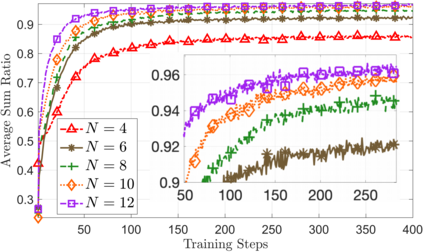Rate split multiple access (RSMA) has been proven as an effective communication scheme for 5G and beyond, especially in vehicular scenarios. However, RSMA requires complicated iterative algorithms for proper resource allocation, which cannot fulfill the stringent latency requirement in resource constrained vehicles. Although data driven approaches can alleviate this issue, they suffer from poor generalizability and scarce training data. In this paper, we propose a fractional programming (FP) based deep unfolding (DU) approach to address resource allocation problem for a weighted sum rate optimization in RSMA. By carefully designing the penalty function, we couple the variable update with projected gradient descent algorithm (PGD). Following the structure of PGD, we embed few learnable parameters in each layer of the DU network. Through extensive simulation, we have shown that the proposed model-based neural networks has similar performance as optimal results given by traditional algorithm but with much lower computational complexity, less training data, and higher resilience to test set data and out-of-distribution (OOD) data.
翻译:暂无翻译





























